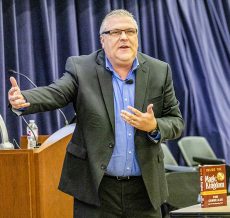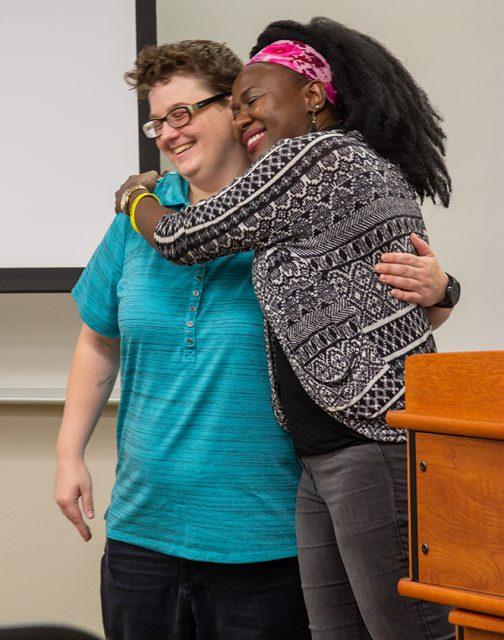
Photo courtesy DeeDra Parrish
By Devin Jones/reporter
In a speech titled “Leading into Tomorrowland,” leadership and organizational management consultant Frank Banfill compared Disneyland to the principles on which TR Campus were originally founded.
Banfill’s talk, delivered Sept. 16 in the Energy Auditorium, was part of the Trinity River Speaks series. He prefaced the speech by stating the importance of anniversaries
“Anniversaries are great,” he said. “They cause us to look backwards and forwards.”
The anniversary Banfill was referring to was the 10th birthday of the Trinity River Campus. Banfill, chosen to speak by marketing professor Dr. Alicia Lupinacci, who described him as “the epitome of leadership,” expanded on his opening remark by highlighting the value of leadership as well as establishing its five principles: learning, listening, lending, looking and living.
“If you’re not learning, you’re not keeping up with what’s happening,” Banfill said. “The world will pass you up.”
Banfill said that a good leader must be able to lend help to others, while also helping him or herself. In addition, Banfill noted that a good leader must be looking for what works and what does not, citing Disneyland’s failure in France.
He concluded that a good leader must live out the values held not only to him or herself, but also as those values reflect on whatever organization they represent. Banfill then cited the popular saying, “walk the talk, and not talk the walk” as stemming from that principle.
Banfill stressed that any leader who doesn’t follow the same rules he gives to others sets a poor image, for both himself and the company he represents.
He went on to cast a positive spotlight on the success of the Disney theme park concept, while connecting that success to the principles of leadership Disney had accumulated throughout its years of business.
“It taught me to listen,” said Bryan Macias, a computer engineering student, as well as to “get input from everyone, not just the loudest in the room.”
Banfill closed his presentation with an appeal to his audience.
“Tomorrow needs you,” he said. “But it also needs you to show up.”
































